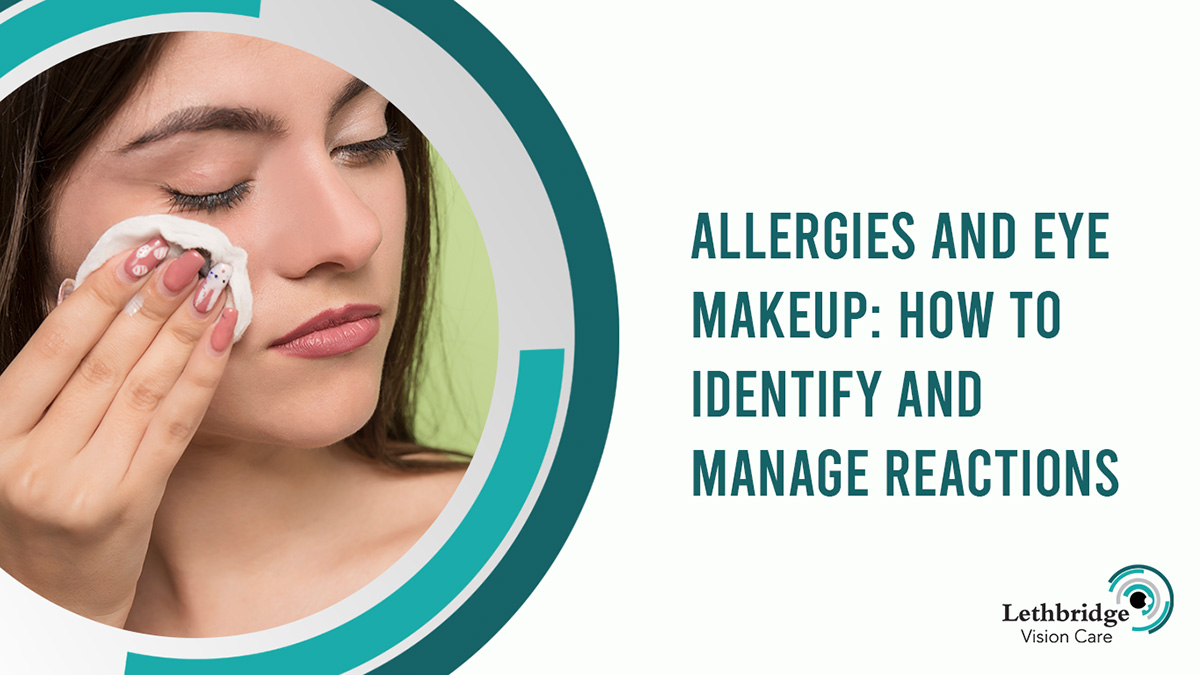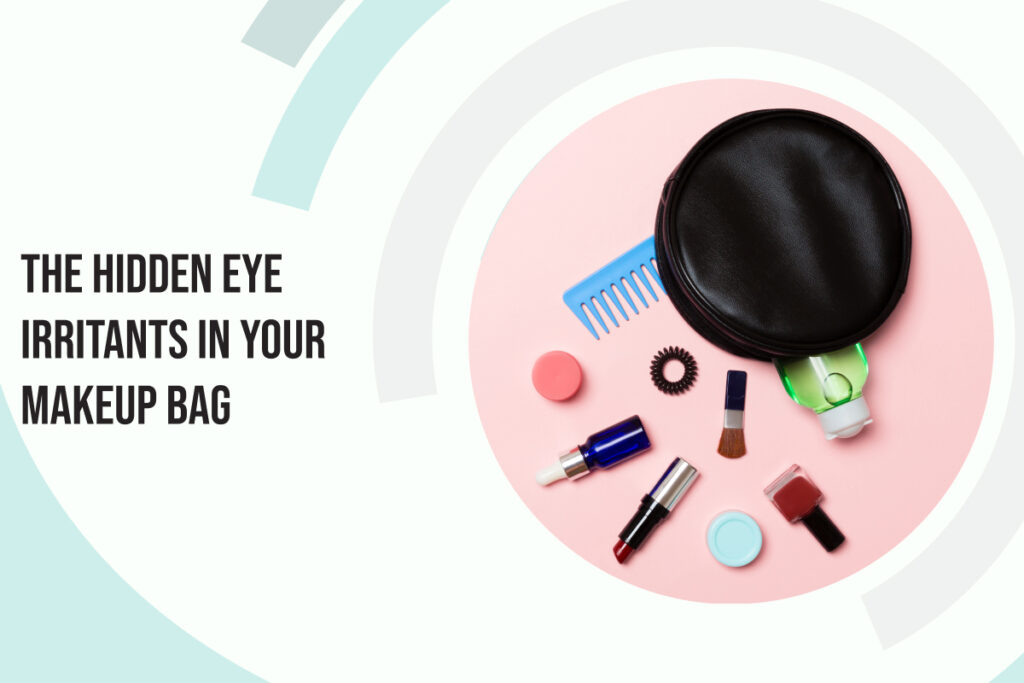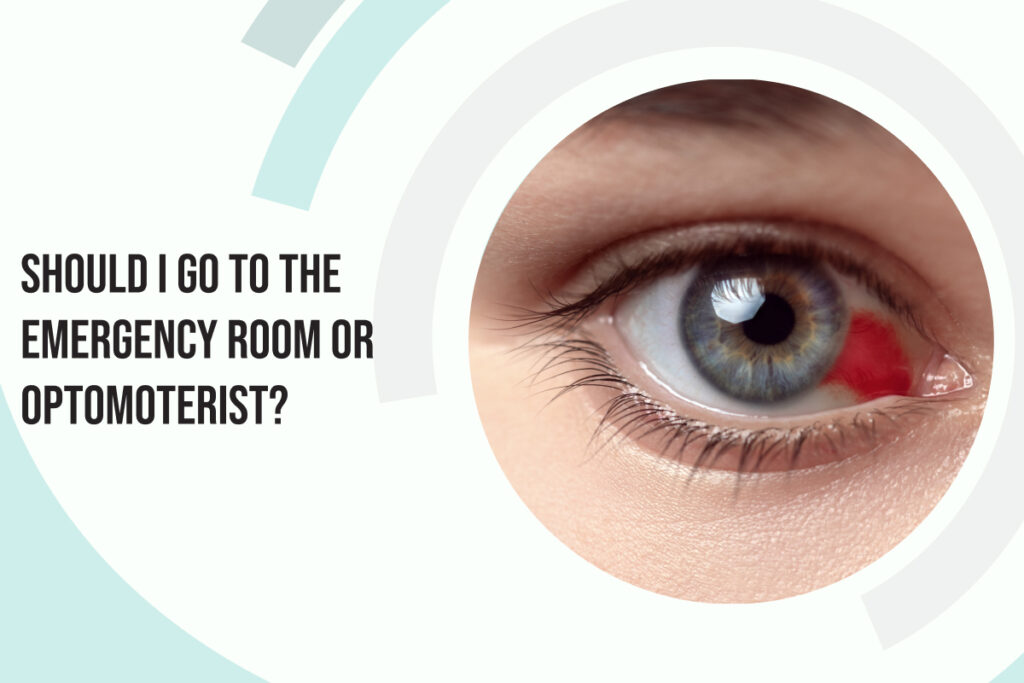Eye makeup is a staple in many people’s daily beauty routines, enhancing their appearance and boosting confidence. However, for some, applying eye makeup can lead to uncomfortable and painful allergic reactions. Understanding how to recognize these reactions and take steps to prevent them is crucial for maintaining eye health and enjoying the benefits of eye makeup without the drawbacks.
Experiencing consistent eye pain? Our Lethbridge Optometrist, located in the Park Place Mall, can help you get to the root of the issue!
Understanding Allergic Reactions to Eye Makeup
An allergic reaction occurs when the immune system mistakenly identifies a harmless substance as a threat. In response, the body releases chemicals, such as histamines, to fight off the perceived invader, leading to symptoms like redness, itching, and swelling. In the context of eye makeup, these allergens can be ingredients in products like eyeshadow, mascara, eyeliner, and even makeup removers. Recognizing the symptoms and understanding the common allergens in these products can help you take preventive measures.
Eye makeup can contain a variety of substances that might trigger allergic reactions. Common allergens include preservatives, fragrances, dyes, and certain chemicals:
- Preservatives like parabens and formaldehyde-releasing agents are often used to prolong product shelf life, but they can cause reactions in sensitive individuals.
- Fragrances, added to enhance the scent of products, can be highly allergenic.
- Synthetic dyes, especially those used in colourful eyeshadows and mascaras, can irritate.
- Other chemicals, such as nickel in specific applicators or latex in adhesives for false eyelashes, can also be culprits.
Recognizing the symptoms of an allergic reaction to eye makeup is essential for prompt action. Common symptoms include redness, itching, swelling, tearing, and a burning or stinging sensation. The affected area may appear red and inflamed, with persistent eye itching. Swelling can occur on the eyelids or surrounding areas; excessive tearing or watery eyes are also common. A burning or stinging sensation can occur upon application, signalling that something is wrong.
How to Identify Allergic Reactions
Early signs of an allergic reaction are usually mild but can quickly escalate. Pay attention to any discomfort immediately after applying eye makeup. If you notice persistent redness, itching, or swelling, it’s likely you’re experiencing an allergic reaction. Consulting with an eye care professional is essential for accurate diagnosis. They may recommend patch testing, where a small amount of the suspected allergen is applied to the skin to see if a reaction occurs, or other allergy tests, such as blood tests or skin prick tests, to identify specific allergens.
Keeping a makeup journal can be incredibly helpful in tracking your makeup use and any reactions. Note the products used each day, any symptoms experienced, and the severity and duration of symptoms. This can help identify patterns and pinpoint the exact cause of your allergies, enabling you to make informed decisions about your makeup products.
Preventing Allergic Reactions to Eye Makeup
Selecting hypoallergenic and fragrance-free products can significantly reduce the risk of reactions. When shopping for eye makeup, look for products labelled as hypoallergenic, fragrance-free, or formulated for sensitive skin. Reading ingredient labels carefully to avoid known allergens is crucial. How you apply and remove makeup can also impact your risk of allergic reactions. Always wash your hands before applying makeup to avoid transferring allergens, and avoid applying makeup directly to the waterline, as this can increase irritation. Using gentle, hypoallergenic makeup removers to ensure all traces of makeup are removed can prevent buildup that causes irritation.
Maintaining good hygiene is another crucial step in preventing allergic reactions:
- Regularly clean brushes, applicators, and other tools to remove bacteria and residue.
- Avoid sharing makeup products to prevent cross-contamination. Avoid expired products or products that have changed in texture.
- Perform patch tests before using new products or ingredients.
Managing Allergic Reactions
If you experience an allergic reaction, taking immediate action is crucial. Carefully remove all makeup with a gentle, hypoallergenic remover and rinse your eyes with cool water to remove any remaining allergens. Over-the-counter treatments such as antihistamines and soothing eye drops can alleviate symptoms. For severe or persistent reactions, consult an eye care professional. They may prescribe medicated eye drops or creams to treat the reaction and prevent further complications.
For individuals with persistent allergies, long-term management strategies are necessary. Regular visits to an eye care professional can help monitor your condition and adjust treatments as needed. Ongoing communication with your eye care professional about any new products or changes in symptoms can provide tailored advice and treatment, helping you manage your allergies effectively.
Allergic reactions to eye makeup can be frustrating and uncomfortable, but they are manageable with the right knowledge and precautions. By understanding how to recognize and prevent these reactions, you can continue enjoying eye makeup’s benefits without compromising your eye health. Don’t hesitate to consult with the professionals at Lethbridge Vision Centre for personalized advice and treatment.
If you’re experiencing allergic reactions to eye makeup or need expert advice on eye care, schedule an appointment with Lethbridge Vision Centre today. Our team of professionals is here to help you maintain healthy, beautiful eyes. Visit our website or call us to book your consultation.







